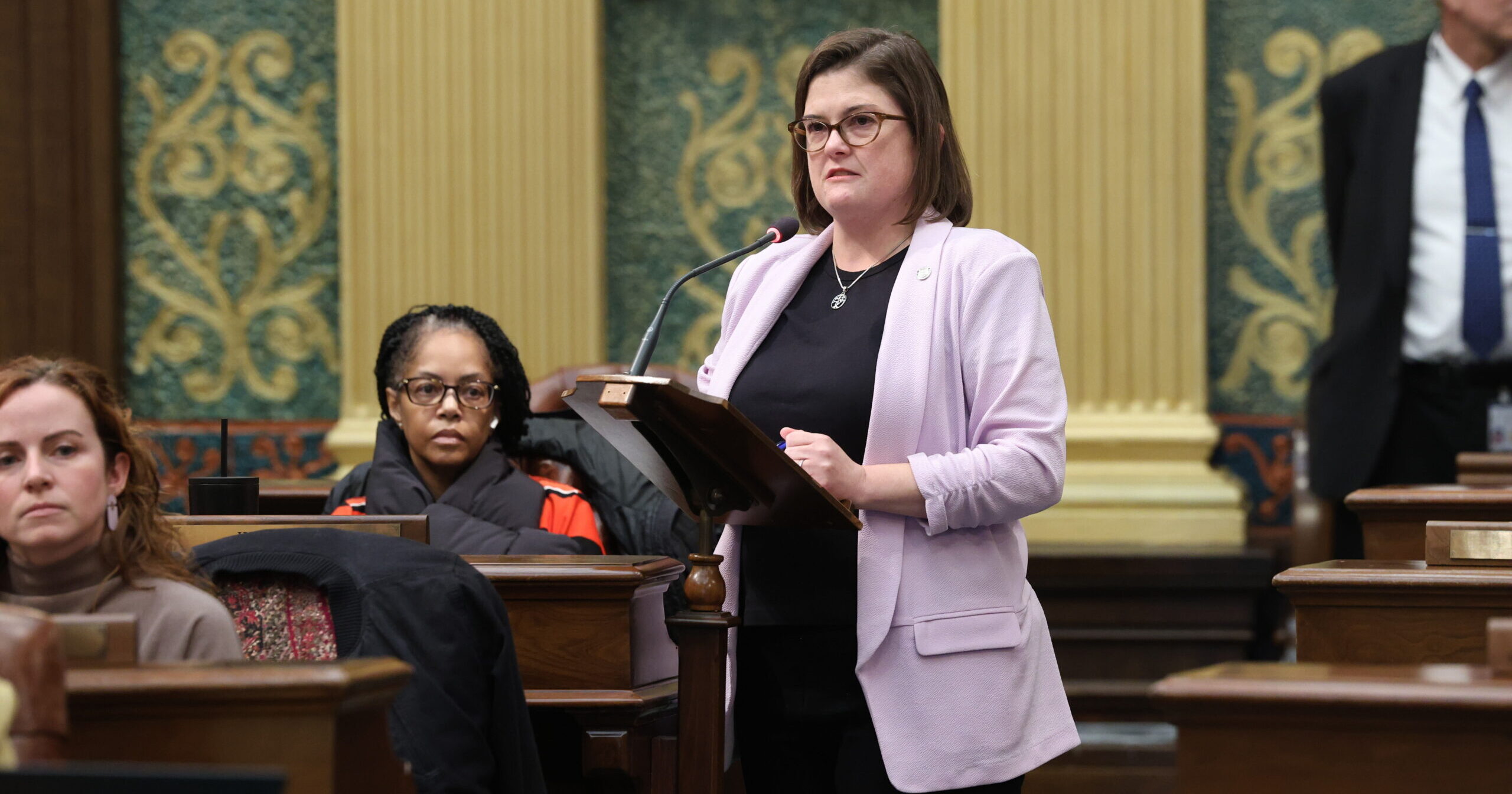Bills improve children’s lives, maintain public safety
LANSING, Mich., Oct. 17, 2023 — The Michigan House of Representatives passed bills to make the juvenile justice system in Michigan more effective and fair. These bills were informed by the recommendations from the bipartisan Juvenile Justice Task Force in 2021.
The legislation within this package focuses on six issue areas: to enhance the Child Care Fund; to provide juveniles with legal counsel; to expand the Juvenile Diversion Act; to require each juvenile receives treatment tailored to their needs; to eliminate most fines and fees; and to expand the Office of Children’s Ombudsman. Today, House Bills 4625–26, HBs 4628–30, HB 4633, HBs 4636–37, HBs 4639–40 and HB 4643 were voted out of the House.
“I am happy to see passage of these bipartisan bills. Today’s vote is a win for the future of the Michigan juvenile justice system,” said state Rep. Kara Hope (D-Holt), chair of the Criminal Justice Committee and the lead sponsor of the package. “These bills were crafted from the research and work done by the experts on the task force to enhance Michigan’s juvenile justice system — its fairness, functionality and responsiveness to youth needs. I couldn’t be more proud of the work from my colleagues on both sides of the aisle to get these voted out. This legislation will make a lasting impact on Michigan’s criminal justice system for our young people and their futures.”
Hope sponsored two bills in the package, with HB 4626 coming up for a vote today. This bill, along with HB 4625, requires the Juvenile Diversion Act to use a risk screening tool and a mental health screening tool before a diversion decision is made for a juvenile. The bills prohibit the terms of a diversion agreement from taking longer than three months to complete. Both HB 4628, sponsored by state Rep. Felicia Brabec (D-Pittsfield), and HB 4629, sponsored by state Rep. Amos O’Neal (D-Saginaw), would mandate special assessments to tailor to the juvenile’s needs in specific circumstances.
“This legislation is for the protection and success of our youth. These new screening tools will assist the decision-makers in choosing the best path for the child with a better idea of their needs. Our kids are our priority, and these bills make that clear,” Brabec said. “It is important that we continue to advocate for our youth, moving us forward with positive momentum for Michiganders’ futures.”
“This year, I’ve introduced several criminal justice reform bills, and I’m proud to be part of this bipartisan legislation. This bill package is about providing justice, and I must add that it is a smart type of justice — it’s the type of justice that gets kids the help they need in the capacity they need it,” said O’Neal, chair of the Appropriations Subcommittee on Corrections. “Michigan does not have uniform statewide policy or the necessary tools in place to ensure that the youth who do not pose a public safety or flight risk aren’t subject to detention facilities. My bill implements a tool to ensure those who are low-risk are not placed in such facilities.”
Other areas addressed are a minor’s access to legal counsel and the reduction of fines and fees. HB 4630, sponsored by state Rep. Sarah Lightner (R-Springport), will amend the Michigan Indigent Defense Commission Act ensuring the compliance with the minimum standards for the effective legal representation of indigent youth in Michigan’s juvenile justice system. HB 4636, sponsored by state Rep. Emily Dievendorf (D-Lansing), will eliminate the late penalty fee for juveniles under Revised Judicature Act.
“The changes we’re making now will help build a brighter future for our youth and our communities,” said Lightner. “Backed by rigorous data and research, this plan renews our efforts to improve the lives of young people and their families, all while ensuring the sensible use of taxpayer dollars on proven programs and practices. Our commitment to equipping those involved in the juvenile justice system with the best practices reflects our dedication to nurturing troubled kids and, in turn, fostering safer communities.”
“Juveniles in the system often come from families already facing hardship. It is important that, as legislators, we reform our criminal justice system to support effective measures, not exacerbate economic turmoil,” Dievendorf said. “My bill eliminates unfair and burdensome social instability of juveniles. Many of my other colleagues have also introduced legislation that together will eliminate fines and fees for juveniles, because it is a strong determiner of recidivism, and our youth need a second chance.”
The last legislative area of concern is the expansion of the Children’s Ombudsman to include juvenile facilities. HB 4640, sponsored by state Rep. Jimmie Wilson, Jr. (D-Ypsilanti), chair of the Appropriations Subcommittee on Judiciary, is one of the bills that will assist in the legislative transition.
“It is important that detention facilities are monitored similarly to other child welfare systems implemented by the state,” Wilson said. “Together, this legislation will make the Children’s Ombudsman Office responsible for handling, investigating and reporting incidents in juvenile facilities. This will help ensure the continued safety of Michigan juveniles and strengthen the duties of the Children’s Ombudsman.”

